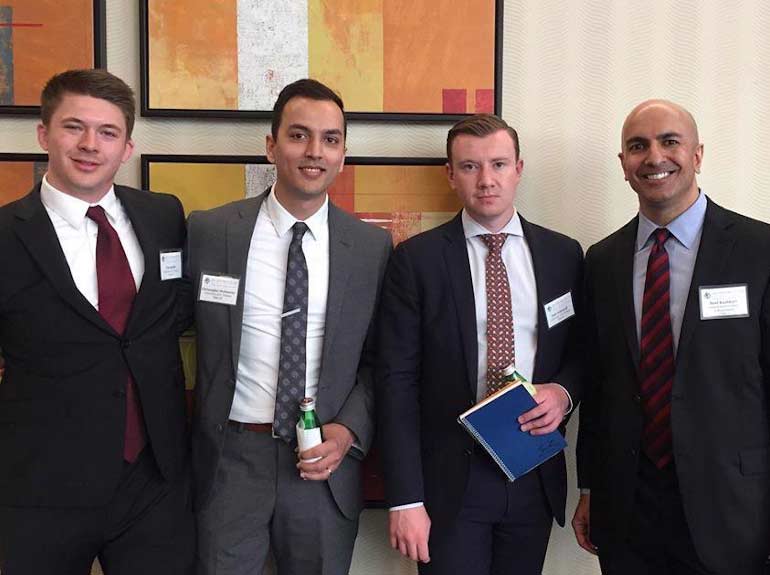
Economics Club
The Economics Club is a student group that organizes both social and academic events to unite and engage students who are passionate about economics.
The Department of Economics at the University of St. Thomas helps you develop logical, analytical and rigorous ways of thinking critically about real world issues through a diverse range of coursework.
Our degree programs teach you the general, flexible and analytical skills valued by the business community, as well as graduate programs ranging from law to business to economics. Our programs complement many others at the university, including (but not limited to) mathematics, foreign languages, business, environmental studies, computer science, finance and international studies.
You will join a supportive community of 15 faculty members who actively engage with students inside and outside of the classroom. You will have numerous opportunities throughout your time at St. Thomas to connect with your peers and our alumni.

What makes our community so special? Watch this beautiful video, showcasing what Economics means to St. Thomas students, faculty, and alumni. The video was produced by a Digital Media Arts senior (now graduated) for our celebration honoring 100 years of graduating Economics majors here at St. Thomas.
In addition to activities sponsored by the Economics Club, the department hosts multiple events each year for our students and professors.

The Economics Club is a student group that organizes both social and academic events to unite and engage students who are passionate about economics.
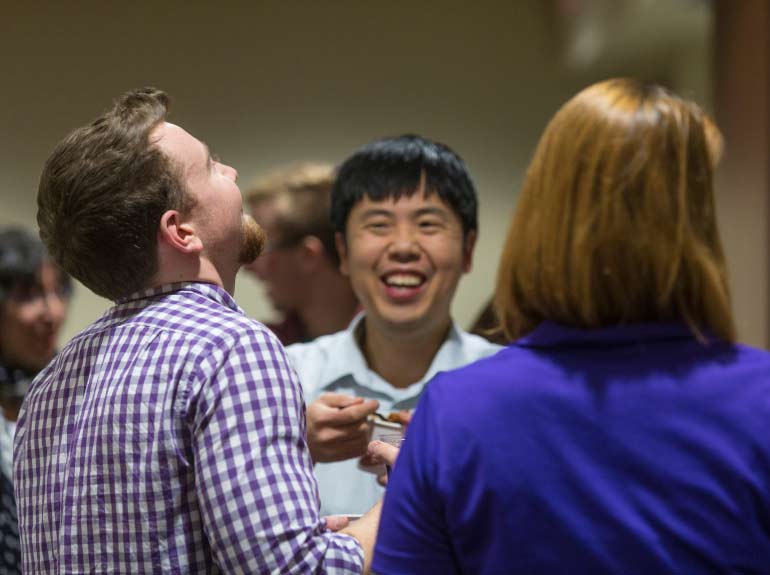
The annual Chili Fest is a great opportunity for economics students and faculty to connect and converse outside of the classroom.

No matter which track you pursue in our department, you will benefit from studying with faculty in the largest economics department of any private college or university in Minnesota. Economics has applications to every facet of work and life, which means you will have access to numerous career paths after graduating from St. Thomas.
Economics alumni engage with our department after graduation through our LinkedIn and Facebook pages, alumni panels and other opportunities. They are dedicated to helping future generations of Tommies.

We LOVE bringing alumni back to campus to share their experiences and expertise with our students. Guest lectures, virtual resume reviews, or Q&A sessions are just a few of the ways are alums are currently interacting with students — and we are always open to new ideas you may have!
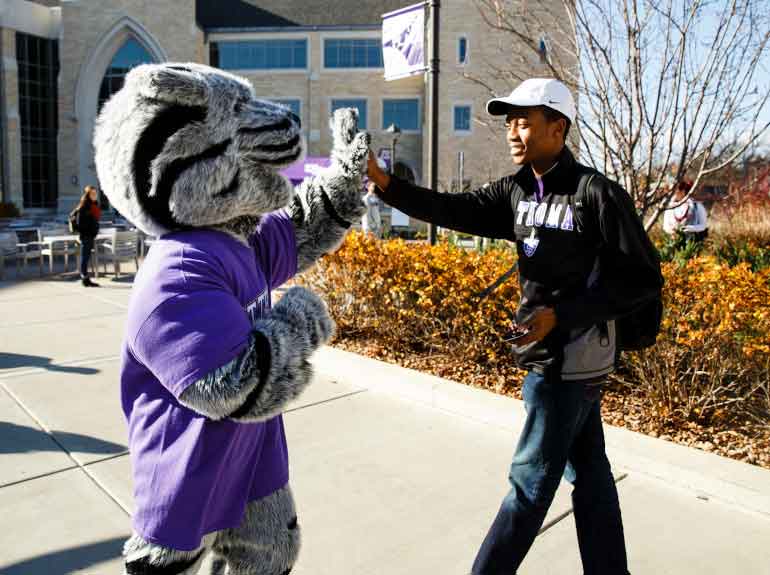
If you would like to make a donation to our student research funds or other areas to support our department, please contact the Development Office.

Economics alumni can join our LinkedIn group to stay in touch, build connections with students, faculty and other alumni and keep apprised of department news!
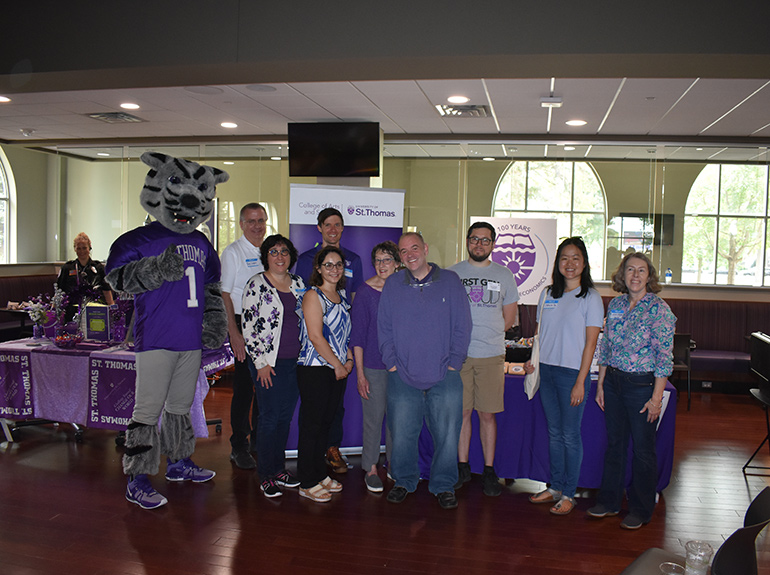
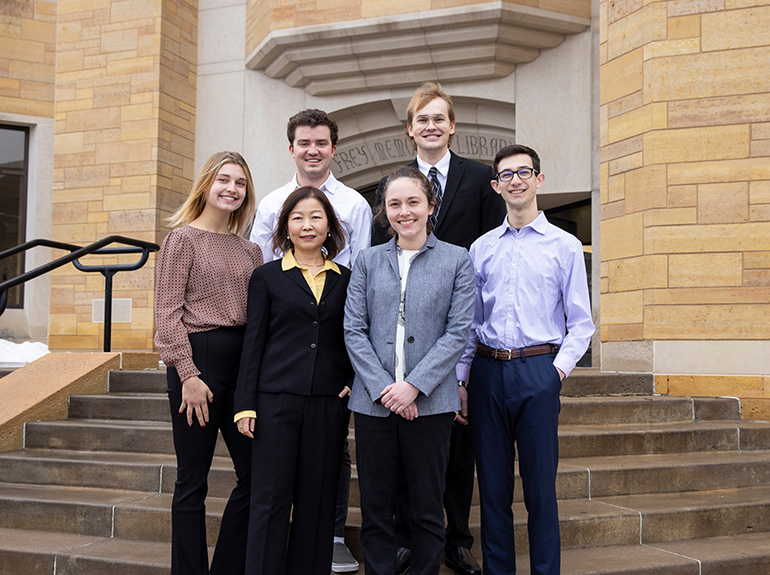
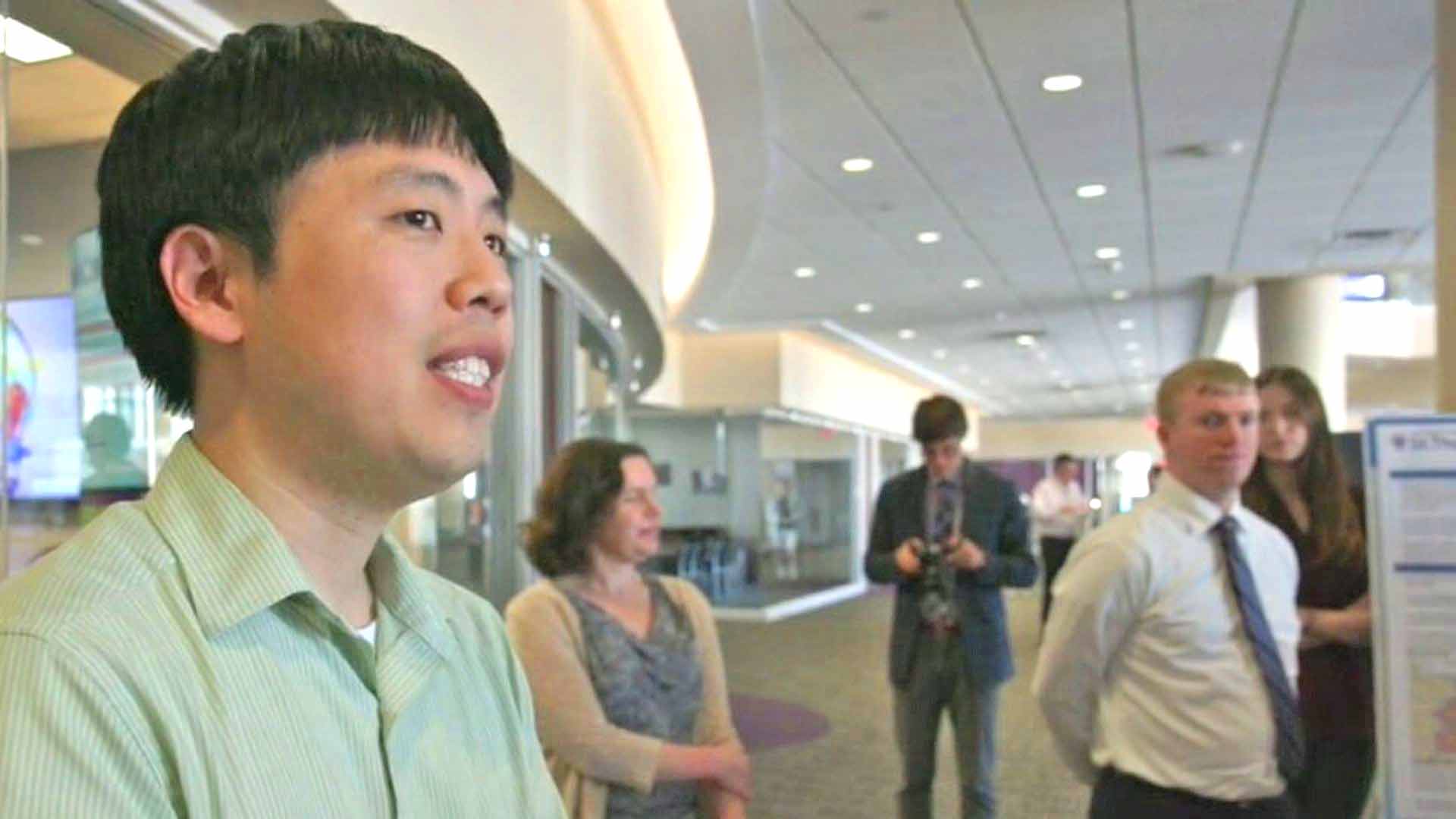
Economics students at St. Thomas have access to a diverse array of opportunities inside and outside of the classroom through research, competitions, faculty and more. Students use their skills and knowledge to impact their communities every day. Examples include:
DataCom
Each year, our department sponsors a data competition where majors and minors conduct independent research, analyze real data, and communicate their findings to a panel of judges.
MinneAnalytics
MinneAnalytics hosts an annual data analytics competition where teams of students from 30 Midwestern colleges and universities compete for prizes.
Our alumni pursue many different paths after graduating, whether that be in industry or postgraduate study.
Careers our alumni have pursued:

Getting involved with research is one of the best ways to get more out of your economics major and stand out to future employers. Our department offers opportunities to assist faculty with their ongoing research, as well as find a faculty mentor to help you develop and execute your own research projects. Students can conduct research during the academic year, J-term or over the summer.
Many opportunities exist to fund your research at St. Thomas. Students can apply for funding to cover costs such as summer housing, or simply to receive a stipend for their research work. The Economics Department may also be able to help with research-related expenses including traveling to present your work at conferences. You can discuss funding opportunities with the faculty member who is overseeing your research.
The Sustainable Communities Partnership (SCP) develops relationships with cities and government entities to integrate a set of city-identified sustainability projects into existing St. Thomas courses across disciplines. Our department has been involved in two projects.
ELK RIVER: SOLID WASTE COLLECTION
The City of Elk River has organized solid waste collection for its residents through two haulers (Randy's Environmental Services and Republic Services). Residential accounts are set up and billed through Elk River Municipal Utilities. Customers pay a monthly fee on their utility bill for their collection services based on the size of the garbage cart, the rate of pick up and if they participate in organics waste collection. The haulers take the garbage to Great River Energy, which also charges the city for disposal and separation of compostable bags. The city's contract fee to the haulers is set until 2022, but the residential customer rates have not been adjusted since 2013.
Dr. Michael Walrath's Industrial Organization students examined whether current customer rates offset the current costs to the city or whether the city is subsidizing collection. Students also explored options for billing the "free" recycling (fee currently included with garbage charge) separately from garbage to prevent recycling charges from being taxed. Finally, students examined the possibility of eliminating the separate charge of organics collection (possibly by incorporating the residential fee for organics collection into garbage collection fees).
The Sustainable Communities Partnership (SCP) develops relationships with cities and government entities to integrate a set of city-identified sustainability projects into existing St. Thomas courses across disciplines. Our department has been involved in two projects.
DELANO: ENERGY EFFICIENCY UPGRADES TO PUBLIC BUILDINGS AND STREET LIGHTING
Monica Hartmann and Matthew Kim integrated city-identified sustainability projects into two of their existing courses—Managerial Decision Making and Economics of the Public Sector, respectively. Students in these courses collaborated to conduct analyses of potential energy efficiency upgrades to public buildings and street lighting for the City of Delano. They benchmarked energy usage, evaluated the technical and political feasibility of potential upgrades, and prepared policy recommendations for Delano's City Council. Students also developed dynamic analytical tools that enabled city staff to conduct future analyses as scenarios change or new data become available.
Getting involved with research is one of the best ways to get more out of your economics major and stand out to future employers. Our department offers opportunities to assist faculty with their ongoing research, as well as find a faculty mentor to help you develop and execute your own research projects. Students can conduct research during the academic year, J-term or over the summer.
Many opportunities exist to fund your research at St. Thomas. Students can apply for funding to cover costs such as summer housing, or simply to receive a stipend for their research work. The Economics Department may also be able to help with research-related expenses including traveling to present your work at conferences. You can discuss funding opportunities with the faculty member who is overseeing your research.
The Sustainable Communities Partnership (SCP) develops relationships with cities and government entities to integrate a set of city-identified sustainability projects into existing St. Thomas courses across disciplines. Our department has been involved in two projects.
ELK RIVER: SOLID WASTE COLLECTION
The City of Elk River has organized solid waste collection for its residents through two haulers (Randy's Environmental Services and Republic Services). Residential accounts are set up and billed through Elk River Municipal Utilities. Customers pay a monthly fee on their utility bill for their collection services based on the size of the garbage cart, the rate of pick up and if they participate in organics waste collection. The haulers take the garbage to Great River Energy, which also charges the city for disposal and separation of compostable bags. The city's contract fee to the haulers is set until 2022, but the residential customer rates have not been adjusted since 2013.
Dr. Michael Walrath's Industrial Organization students examined whether current customer rates offset the current costs to the city or whether the city is subsidizing collection. Students also explored options for billing the "free" recycling (fee currently included with garbage charge) separately from garbage to prevent recycling charges from being taxed. Finally, students examined the possibility of eliminating the separate charge of organics collection (possibly by incorporating the residential fee for organics collection into garbage collection fees).
The Sustainable Communities Partnership (SCP) develops relationships with cities and government entities to integrate a set of city-identified sustainability projects into existing St. Thomas courses across disciplines. Our department has been involved in two projects.
DELANO: ENERGY EFFICIENCY UPGRADES TO PUBLIC BUILDINGS AND STREET LIGHTING
Monica Hartmann and Matthew Kim integrated city-identified sustainability projects into two of their existing courses—Managerial Decision Making and Economics of the Public Sector, respectively. Students in these courses collaborated to conduct analyses of potential energy efficiency upgrades to public buildings and street lighting for the City of Delano. They benchmarked energy usage, evaluated the technical and political feasibility of potential upgrades, and prepared policy recommendations for Delano's City Council. Students also developed dynamic analytical tools that enabled city staff to conduct future analyses as scenarios change or new data become available.
We have 15 full-time faculty that teach a wide array of courses supporting our five undergraduate degrees. Faculty are involved in supervising student research and engaging in their own research.
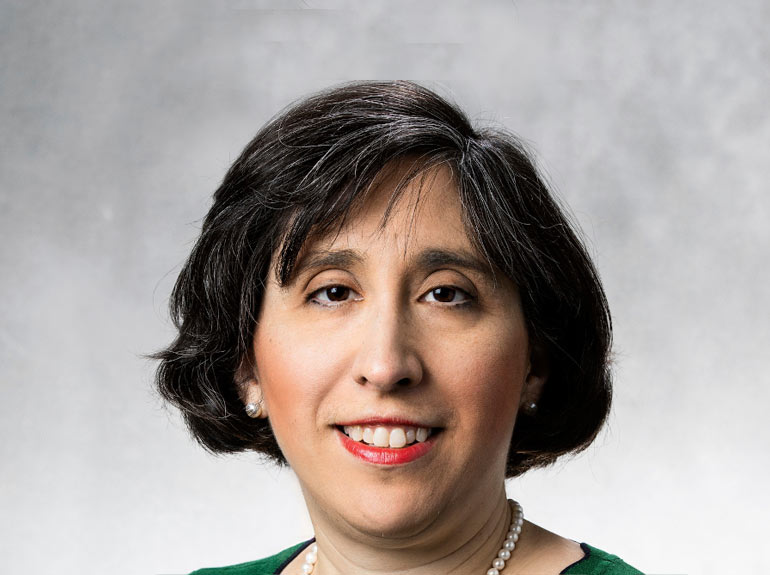
Dr. Hartmann studies how business practices and government regulations affect market competition. Her research includes the study of the airline and the used automobile industries. She has involved students in business consulting projects focusing on topics such as how we finance low-income housing.
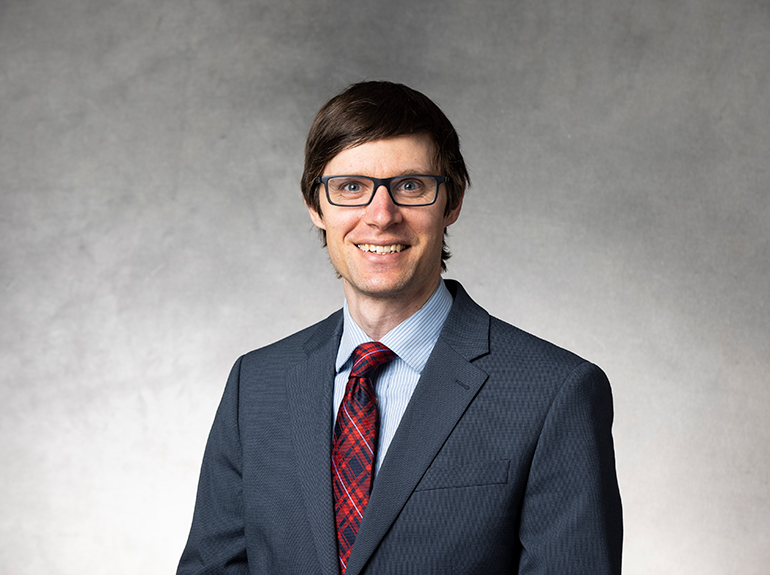
Dr. Schipper studies the role of informal firms in developing economies and has recently shared his expertise at an OECD-sponsored conference in Argentina. He includes students on his research projects and also mentors students working on their own research as well as at data competitions.
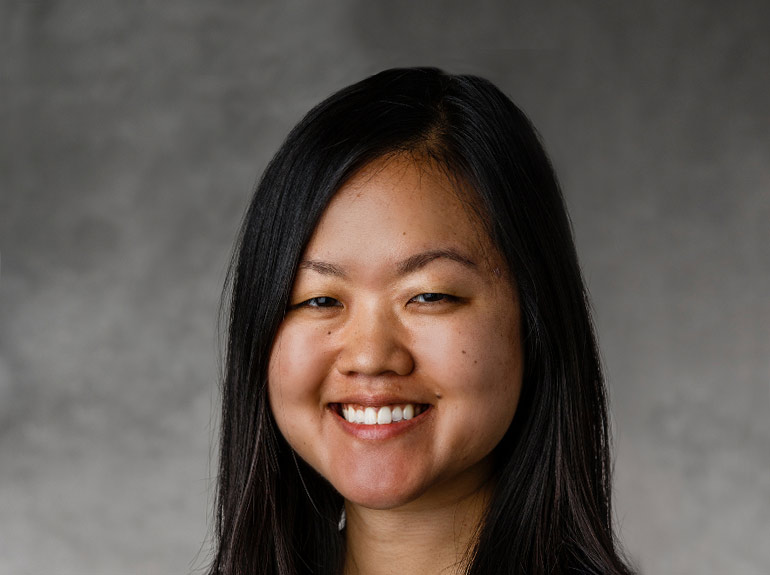
Dr. Rho is a labor economist who studies potential bias in various settings, including employment and housing decisions. Much of her work is focused on studying these issues in the Twin Cities. She works frequently with student research assistants who help her collect and analyze data.
Please feel free to contact us if you have any questions about our department.
Tel: (651) 962-5675
Email: economics@stthomas.edu
Mailing Address
4th Floor, O'Shaughnessy Education Center (OEC)
University of St. Thomas
2115 Summit Avenue
St. Paul, MN 55105
Campus Location
We are located on the fourth floor of the O'Shaughnessy Education Center (Building #5 on campus map).